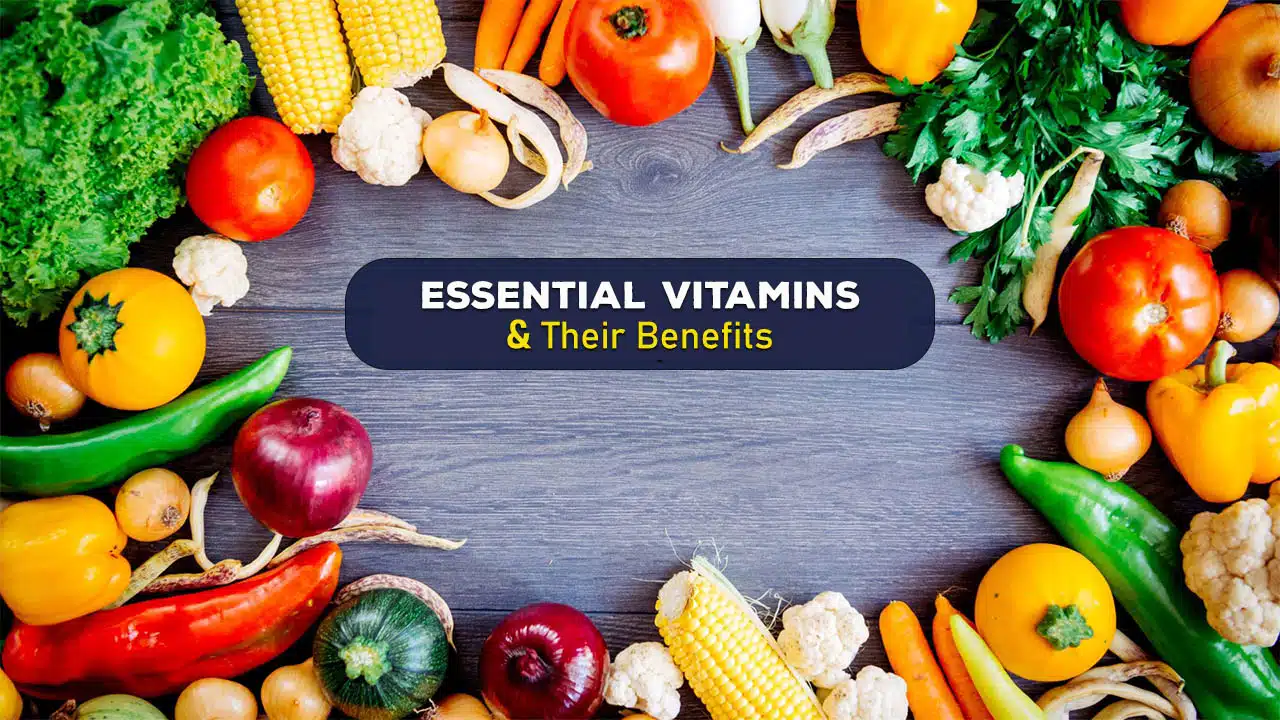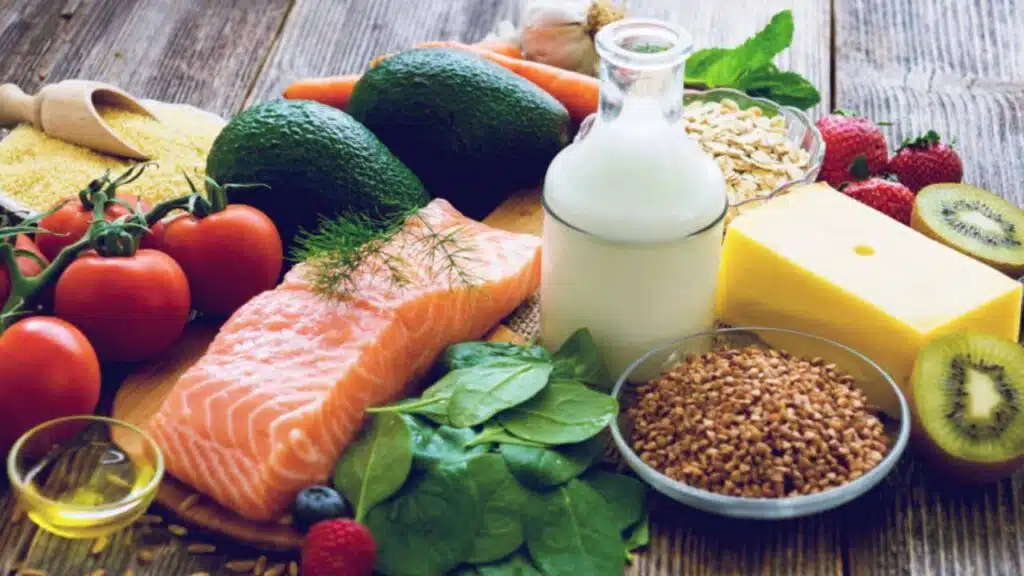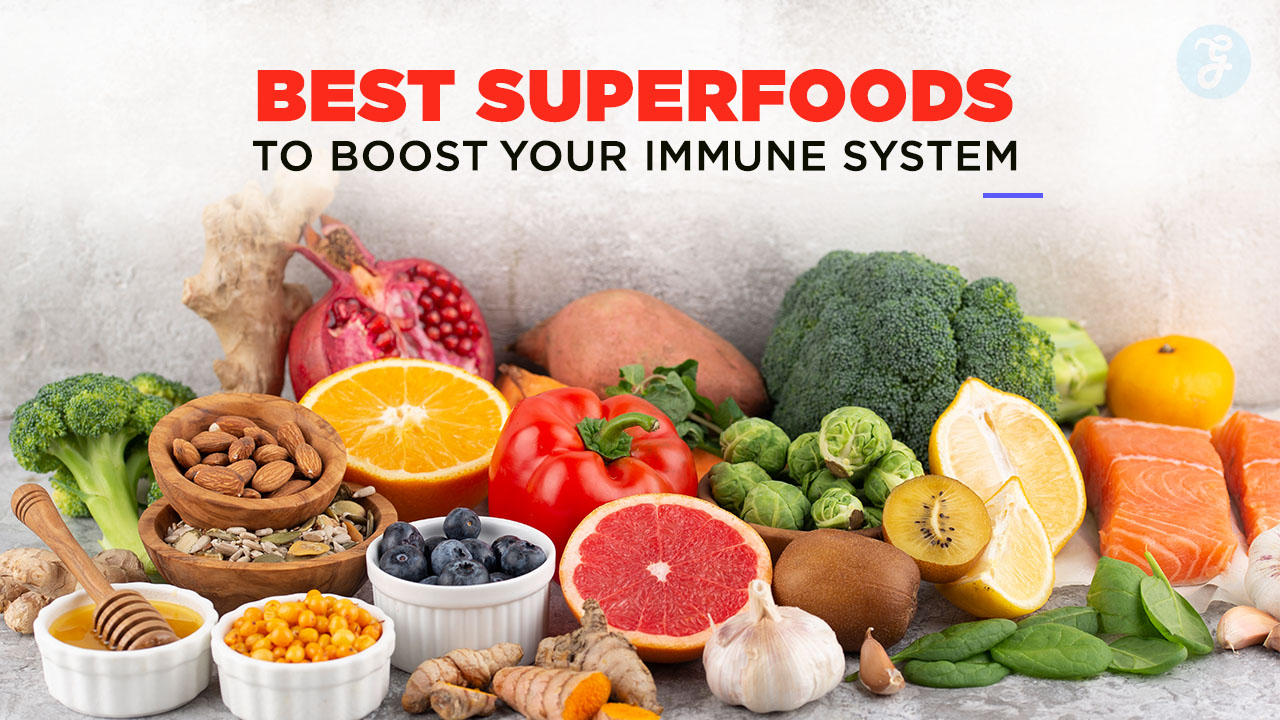Vitamins are organic compounds that our bodies need in small amounts to function properly. They play crucial roles in numerous bodily processes, from maintaining healthy skin to supporting our immune system. While we only need vitamins in tiny quantities, their impact on our health is enormous.
This article will delve deep into 15 essential vitamins, exploring their functions, benefits, and the best ways to incorporate them into your diet.
Essential Vitamins and Their Benefits
We’ll look at the latest research, discuss potential deficiency risks, and provide practical tips for ensuring you get enough of each vitamin.
Understanding the role of vitamins in your body can empower you to make informed decisions about your diet and overall health.
Whether you’re looking to boost your immune system, improve your skin health, or simply ensure you’re meeting your nutritional needs, this guide will provide you with the knowledge you need.
Let’s explore these vital nutrients and how they contribute to our daily well-being.
1. Vitamin A: The Vision Vitamin
Vitamin A, also known as retinol, is a fat-soluble vitamin that plays a crucial role in many bodily functions. It’s often called the “vision vitamin” due to its essential role in eye health, but its benefits extend far beyond just supporting good eyesight.
Key Benefits of Vitamin A:
- Vision Health: Vitamin A is a critical component of rhodopsin, a protein in your eyes that allows you to see in low-light conditions. It also helps maintain a clear cornea, the outside covering of your eye.
- Immune Function: This vitamin helps develop and regulate the immune system. It supports the production and function of white blood cells, which help capture and clear bacteria and other pathogens from your bloodstream.
- Skin Health: Vitamin A supports skin cell production and growth. It has been shown to help reduce acne and support overall skin health.
- Reproductive Health: It’s essential for both male and female reproductive systems and plays a role in fetal development.
- Bone Health: Vitamin A plays a role in bone growth and breaking down old bone tissue (bone resorption).
Food Sources of Vitamin A:
- Orange and yellow vegetables: Carrots, sweet potatoes, pumpkin
- Dark green leafy vegetables: Spinach, kale, collard greens
- Orange fruits: Mangoes, cantaloupes
- Dairy products: Milk, cheese, yogurt
- Eggs
- Liver and fish oils
It’s important to note that vitamin A comes in two forms: preformed vitamin A (retinol and retinyl esters), found in animal products, and provitamin A carotenoids (like beta-carotene), found in plant-based foods. Your body converts provitamin A into active vitamin A as needed.
Vitamin A Deficiency and Excess:
A deficiency in vitamin A can lead to night blindness, dry eyes, and an increased risk of infections. In severe cases, it can cause complete blindness, particularly in young children.
On the other hand, excessive intake of preformed vitamin A can be toxic, leading to nausea, headaches, blurred vision, and, in extreme cases, liver damage. However, high intakes of provitamin A carotenoids are not associated with these risks.
2. Vitamin B1 (Thiamine): The Energy Booster
Vitamin B1, or thiamine, is a water-soluble vitamin that plays a crucial role in energy metabolism. It’s often called an “anti-stress” vitamin due to its positive effects on the nervous system and mental attitude.
Key Benefits of Vitamin B1:
- Energy Production: Thiamine is essential for metabolizing carbohydrates, proteins, and fats. It helps convert food into adenosine triphosphate (ATP), the energy currency of cells.
- Nervous System Function: It’s crucial for the health of nerve cells and supports proper nerve impulse transmission.
- Heart Health: Thiamine supports proper heart function and has been linked to reduced risk of heart failure.
- Brain Function: It plays a role in the production of neurotransmitters and may help improve memory and concentration.
- Digestive Health: Thiamine aids in producing hydrochloric acid, essential for proper digestion.
Food Sources of Vitamin B1:
- Whole grains: Brown rice, oatmeal, whole wheat bread
- Legumes: Beans, lentils, peas
- Nuts and seeds: Sunflower seeds, macadamia nuts
- Pork
- Fish: Trout, tuna, mussels
- Fortified breakfast cereals
Vitamin B1 Deficiency and Excess:
Thiamine deficiency can lead to beriberi, which affects the cardiovascular, nervous, and muscular systems. Symptoms can include fatigue, irritability, memory loss, loss of appetite, and sleep disturbances. In severe cases, it can lead to heart failure and nerve damage.
Alcoholism is a common cause of thiamine deficiency in developed countries, as alcohol interferes with thiamine absorption and increases its excretion.
Excess intake of thiamine from food sources is not known to cause adverse effects. The body excretes any excess through urine. However, very high doses of supplements may cause stomach upset.
3. Vitamin B2 (Riboflavin): The Metabolism Helper
Vitamin B2, riboflavin, is another water-soluble B vitamin crucial in energy production and cellular function. Its name comes from its color: riboflavin has a yellow-green fluorescent tint.
Key Benefits of Vitamin B2:
- Energy Production: Like other B vitamins, riboflavin helps convert food into energy. It’s crucial for the metabolism of fats, proteins, and carbohydrates.
- Antioxidant Function: Riboflavin acts as an antioxidant, helping to fight free radicals and prevent cellular damage.
- Red Blood Cell Formation: It’s necessary to produce red blood cells, which carry oxygen throughout the body.
- Growth and Development: Riboflavin is essential for average cell growth and function.
- Eye Health: Some studies suggest riboflavin may help prevent cataracts and migraines.
Food Sources of Vitamin B2:
- Dairy products: Milk, yogurt, cheese
- Eggs
- Lean meats and organ meats
- Green vegetables: Broccoli, spinach, asparagus
- Fortified cereals and grains
- Nuts: Almonds
Vitamin B2 Deficiency and Excess:
Riboflavin deficiency, while rare in developed countries, can cause symptoms such as sore throat, swelling of the mouth and throat, cracks or sores on the outsides of the lips (cheilosis), and a swollen tongue. In severe cases, it can lead to anemia and cataracts.
Excess intake of riboflavin is not known to cause any harm, as any excess is excreted in urine. This excretion can cause urine to have a bright yellow color, which is harmless.
4. Vitamin B3 (Niacin): The Cholesterol Fighter
Vitamin B3, also known as niacin or nicotinic acid, is a water-soluble vitamin that plays a crucial role in many bodily functions. It’s mainly known for its ability to influence cholesterol levels.
Key Benefits of Vitamin B3:
- Cholesterol Management: Niacin can help lower “bad” LDL cholesterol and triglycerides while raising “good” HDL cholesterol.
- Energy Production: Like other B vitamins, niacin helps convert food into energy by aiding enzymes.
- DNA Repair: Niacin is involved in the process of repairing DNA.
- Brain Function: It plays a role in brain function and has been studied for its potential to protect against Alzheimer’s disease and other cognitive decline.
- Skin Health: Niacin helps maintain healthy skin and may help treat certain skin conditions.
Food Sources of Vitamin B3:
- Meat: Beef, pork, chicken
- Fish: Tuna, salmon, sardines
- Peanuts and peanut butter
- Legumes: Lentils, chickpeas
- Fortified grains and cereals
- Mushrooms
Vitamin B3 Deficiency and Excess:
Severe niacin deficiency leads to pellagra, a disease characterized by the “4 D’s”: diarrhea, dermatitis, dementia, and death if left untreated. However, pellagra is rare in developed countries due to food fortification.
While it’s difficult to consume too much niacin from food sources, high-dose niacin supplements can cause side effects. The most common is “niacin flush,” a harmless but uncomfortable reddening and tingling of the skin. Very high doses can lead to more severe side effects like liver damage.
5. Vitamin B5 (Pantothenic Acid): The Stress Reducer
Vitamin B5, also known as pantothenic acid, is a water-soluble vitamin that plays a vital role in many metabolic processes. Its name comes from the Greek word “pantos,” meaning “everywhere,” because it’s found in almost all foods to some degree.
Key Benefits of Vitamin B5:
- Stress Response: Pantothenic acid is produced in the adrenal glands, earning it the nickname “anti-stress vitamin.”
- Energy Production: Like other B vitamins, it helps convert food into glucose and break down fats and proteins.
- Red Blood Cell Formation: It’s necessary for forming red blood cells.
- Cholesterol and Hormone Synthesis: Pantothenic acid is crucial for making cholesterol, which produces various hormones.
- Skin and Hair Health: It’s beneficial for maintaining healthy skin and may help in hair growth and color restoration.
Food Sources of Vitamin B5:
- Meat: Beef, chicken, organ meats
- Fish
- Egg yolks
- Broccoli and avocados
- Whole grains
- Mushrooms
Vitamin B5 Deficiency and Excess:
Pantothenic acid deficiency is extremely rare because it’s found in many foods. In the rare cases where it occurs, symptoms can include fatigue, insomnia, depression, irritability, vomiting, stomach pains, burning feet, and upper respiratory infections.
There’s no known toxicity associated with high intakes of pantothenic acid from foods or supplements. However, very high doses of pantothenic acid supplements (far above the recommended daily intake) may cause diarrhea and increase the risk of bleeding.
6. Vitamin B6 (Pyridoxine): The Mood Stabilizer
Vitamin B6, also known as pyridoxine, is a water-soluble vitamin that plays a crucial role in various bodily functions, particularly protein metabolism and cognitive development.
Key Benefits of Vitamin B6:
- Mood Regulation: B6 creates neurotransmitters, including serotonin and dopamine, which regulate mood.
- Cognitive function: It’s essential for normal brain development and function.
- Hemoglobin Production: B6 helps create hemoglobin, the protein in red blood cells that carries oxygen.
- Immune Function: It aids in producing antibodies and other immune system components.
- Hormone Regulation: B6 may help reduce premenstrual syndrome (PMS) symptoms and may play a role in treating nausea during pregnancy.
Food Sources of Vitamin B6:
- Poultry: Chicken, turkey
- Fish: Salmon, tuna
- Potatoes and other starchy vegetables
- Non-citrus fruits: Bananas, papayas
- Fortified cereals
- Nuts and seeds
Vitamin B6 Deficiency and Excess:
B6 deficiency can cause anemia, confusion, depression, and a weakened immune system. It can also lead to scaling on the lips and cracks at the corners of the mouth.
While toxicity from food sources is not a concern, very high doses of B6 supplements over long periods can lead to nerve damage, causing numbness and tingling in the hands and feet. This condition is usually reversible when supplementation is stopped.
7. Vitamin B7 (Biotin): The Beauty Vitamin
Vitamin B7, commonly known as biotin and sometimes called vitamin H, is a water-soluble B-complex vitamin. It’s often marketed as a supplement for hair, skin, and nail health, earning it the nickname “the beauty vitamin.”
Key Benefits of Vitamin B7:
- Hair, Skin, and Nail Health: Biotin is crucial for maintaining healthy hair, skin, and nails. It’s often used in cosmetic products for this reason.
- Metabolism: It plays a vital role in the metabolism of fats, carbohydrates, and proteins.
- Blood Sugar Regulation: Biotin may help regulate blood sugar levels and could benefit people with diabetes.
- Pregnancy and Breastfeeding: Adequate biotin is vital during pregnancy and lactation for normal fetal development.
- Nervous System Function: It supports the health of the nervous system.
Food Sources of Vitamin B7:
- Egg yolks
- Nuts and seeds: Almonds, peanuts, walnuts
- Salmon and other fatty fish
- Avocados
- Sweet potatoes
- Cauliflower
Vitamin B7 Deficiency and Excess:
Biotin deficiency is rare but can occur. Symptoms include hair loss, skin rashes, brittle nails, and, in severe cases, neurological symptoms like depression, lethargy, hallucinations, and numbness and tingling of the extremities.
Biotin is considered very safe, and there’s no evidence that even very high doses of supplements cause harm. However, high doses of biotin can interfere with specific lab tests, including those for thyroid function and cardiac troponin, potentially leading to false results.
8. Vitamin B9 (Folate): The Pregnancy Protector
Vitamin B9, also known as folate or folic acid (its synthetic form), is a crucial B vitamin, essential during rapid cell division and growth, such as during pregnancy and infancy.
Key Benefits of Vitamin B9:
- Fetal Development: Folate prevents neural tube defects in developing fetuses.
- DNA Synthesis: It plays a vital role in DNA synthesis and repair, essential for all cell division and growth.
- Red Blood Cell Formation: Folate works with vitamin B12 to form healthy red blood cells and prevent anemia.
- Heart Health: Adequate folate intake may reduce the risk of heart disease by lowering homocysteine levels in the blood.
- Cognitive Function: Some studies suggest folate may help prevent cognitive decline and reduce the risk of Alzheimer’s disease.
Food Sources of Vitamin B9:
- Dark green leafy vegetables: Spinach, kale, broccoli
- Legumes: Lentils, chickpeas, kidney beans
- Citrus fruits: Oranges, lemons, grapefruits
- Fortified grains and cereals
- Avocado
- Asparagus
- Brussels sprouts
- Nuts and seeds: Peanuts, sunflower seeds
- Eggs
- Liver
Vitamin B9 Deficiency and Excess:
Folate deficiency can lead to megaloblastic anemia, where red blood cells are more significant than usual and can’t function properly. Symptoms include fatigue, weakness, irritability, headache, heart palpitations, and shortness of breath.
Pregnant women with folate deficiency have a higher risk of giving birth to babies with neural tube defects, such as spina bifida. This is why many countries fortify grain products with folic acid and recommend folic acid supplements for women of childbearing age.
While it’s difficult to consume too much folate from natural food sources, high doses of folic acid supplements can mask a vitamin B12 deficiency, potentially leading to neurological damage. Very high doses may also increase the risk of certain cancers in some people, although more research is needed in this area.
9. Vitamin B12 (Cobalamin): The Energy Producer
Vitamin B12, also known as cobalamin, is a water-soluble vitamin that plays crucial roles in many bodily functions, particularly in forming red blood cells and maintaining the central nervous system.
Key Benefits of Vitamin B12:
- Red Blood Cell Formation: B12 is essential for forming healthy red blood cells. Without it, anemia can develop.
- Neurological Function: It’s crucial for maintaining the health of nerve cells, including those needed for neurotransmitter signaling.
- DNA Synthesis: B12 works alongside folate in synthesizing DNA.
- Energy Production: It helps convert food into glucose, giving you energy.
- Heart Health: B12 may help lower homocysteine levels, potentially reducing the risk of heart disease.
Food Sources of Vitamin B12:
- Meat: Beef, liver, chicken
- Fish: Salmon, trout, tuna, clams
- Dairy products: Milk, cheese, yogurt
- Eggs
- Fortified plant-based milk alternatives
- Fortified breakfast cereals
- Nutritional yeast (some brands)
It’s important to note that B12 is primarily found in animal products. Vegetarians, especially vegans, may need fortified foods or supplements to meet their B12 needs.
Vitamin B12 Deficiency and Excess:
B12 deficiency can cause various symptoms, including fatigue, weakness, constipation, loss of appetite, and weight loss. Neurological changes such as numbness and tingling in the hands and feet can also occur. In severe cases, B12 deficiency can lead to neurological problems, mental issues, and blood diseases.
Certain groups are at higher risk of B12 deficiency:
- Older adults
- Vegetarians and vegans
- Those with gastrointestinal disorders like Crohn’s disease or celiac disease
- People who have had gastrointestinal surgery
- Those taking certain medications, such as proton pump inhibitors or metformin,
B12 is safe even at high doses, as excess is typically excreted in urine. However, very high doses may cause side effects in some people, such as headache, nausea, and vomiting.
Interesting Fact: Vitamin B12 is the largest and most structurally complex vitamin. It’s the only vitamin that contains a metal ion (cobalt), which is why it’s called cobalamin. The human body stores several years’ worth of B12 in the liver, so deficiency develops slowly.
10. Vitamin C: The Immune Booster
Vitamin C, also known as ascorbic acid, is a water-soluble vitamin renowned for supporting the immune system. It’s also a powerful antioxidant that plays many vital bodily roles.
Key Benefits of Vitamin C:
- Immune Support: It stimulates the production and function of white blood cells, helping the body fight off infections.
- Antioxidant Properties: Vitamin C helps protect cells from damage caused by free radicals.
- Collagen Production: It’s essential for producing collagen, a protein crucial for skin health and wound healing.
- Iron Absorption: Vitamin C enhances the absorption of iron from plant-based foods.
- Cardiovascular Health: It may help lower the risk of heart disease by reducing blood pressure and potentially lowering harmful cholesterol levels.
Food Sources of Vitamin C:
- Citrus fruits: Oranges, lemons, grapefruits
- Berries: Strawberries, blueberries, raspberries
- Tropical fruits: Papaya, pineapple, mango
- Bell peppers, especially red and yellow varieties
- Broccoli and Brussels sprouts
- Potatoes
- Tomatoes
- Leafy greens: Spinach, kale
Vitamin C Deficiency and Excess:
Severe vitamin C deficiency leads to scurvy, a condition characterized by fatigue, widespread connective tissue weakness, and capillary fragility. Early deficiency symptoms include dry skin, rough wound healing, easy bruising, and bleeding gums.
Vitamin C is generally considered safe, even at high doses. However, high doses (more than 2,000 mg daily) may cause digestive distress, such as diarrhea and nausea. There’s also some concern that high doses of vitamin C could contribute to kidney stones in people with a history of them.
Interesting Fact: Unlike most animals, humans cannot produce vitamin C. We share this trait with other primates, guinea pigs, and some species of bats and birds. This is due to a genetic mutation millions of years ago, which removed our ability to make an enzyme necessary for vitamin C synthesis.
11. Vitamin D: The Sunshine Vitamin
Vitamin D is unique among vitamins because our bodies can produce it when our skin is exposed to sunlight. It’s a fat-soluble vitamin that acts more like a hormone, influencing numerous bodily processes.
Key Benefits of Vitamin D:
- Bone Health: It helps the body absorb calcium and phosphorus, which are crucial for building and maintaining strong bones.
- Immune Function: Vitamin D plays a role in activating T cells, which are central to the body’s immune response.
- Mood Regulation: Some studies suggest vitamin D may play a role in regulating mood and reducing the risk of depression.
- Muscle Function: Adequate vitamin D is essential for muscle strength and reducing the risk of falls, especially in older adults.
- Potential Cancer Prevention: Some research suggests vitamin D may help prevent certain types of cancer, though more studies are needed.
Food Sources of Vitamin D:
- Fatty fish: Salmon, mackerel, sardines
- Cod liver oil
- Egg yolks
- Mushrooms exposed to UV light
- Fortified foods: Milk, orange juice, cereals
- Beef liver
It’s important to note that few foods naturally contain significant amounts of vitamin D. For many people, sunlight exposure and supplements are necessary to meet their vitamin D needs.
Vitamin D Deficiency and Excess:
Vitamin D deficiency is common, especially in areas with limited sunlight, among people with darker skin, and in older adults. Symptoms can include bone pain, muscle weakness, increased risk of fractures, and rickets (softening and weakening of bones) in children.
While it’s difficult to get too much vitamin D from sunlight or food, excessive intake from supplements can lead to vitamin D toxicity. This can cause symptoms such as nausea, vomiting, weakness, and, in severe cases, kidney problems. However, toxicity is rare and usually only occurs with very high supplement doses over extended periods.
12. Vitamin E: The Antioxidant Defender
Vitamin E is a fat-soluble antioxidant crucial to protecting your cells from damage. It’s a group of eight compounds, with alpha-tocopherol being humans’ biologically active form.
Key Benefits of Vitamin E:
- Antioxidant Protection: It helps protect cells from damage caused by free radicals, which may help prevent chronic diseases.
- Immune Function: Vitamin E supports the immune system, particularly in older adults.
- Skin Health: It may help protect the skin from UV radiation damage and support skin healing.
- Eye Health: Some studies suggest vitamin E may help prevent age-related eye diseases.
- Cognitive Function: It may help slow mental decline in older adults, though more research is needed.
Food Sources of Vitamin E:
- Nuts and seeds: Almonds, sunflower seeds, hazelnuts
- Vegetable oils: Sunflower oil, safflower oil, wheat germ oil
- Avocados
- Leafy green vegetables: Spinach, Swiss chard
- Squash and pumpkin
- Fish: Trout, salmon
- Fruits: Kiwi, mango
- Fortified cereals and juices
Vitamin E Deficiency and Excess:
Vitamin E deficiency is rare in healthy people and is usually due to fat malabsorption disorders. Symptoms can include nerve and muscle damage leading to loss of feeling in the arms and legs, muscle weakness, and vision problems.
Vitamin E from food sources is not known to be harmful. However, high doses of alpha-tocopherol supplements can cause bleeding problems, especially in people taking blood-thinning medications. Very high doses may also interfere with the body’s ability to clot blood, increasing the risk of hemorrhagic stroke.
13. Vitamin K: The Blood Clotting Vitamin
Vitamin K is a fat-soluble vitamin that plays a crucial role in blood clotting. It’s a group of compounds, with vitamins K1 (phylloquinone) and K2 (menaquinones) most important for human health.
Key Benefits of Vitamin K:
- Blood Clotting: It’s essential to produce several proteins needed for blood clotting.
- Bone Health: Vitamin K activates proteins involved in bone formation and may help prevent osteoporosis.
- Heart Health: Some studies suggest it may help prevent the calcification of blood vessels, potentially reducing the risk of heart disease.
- Brain Function: Emerging research indicates vitamin K may play a role in cognitive health and may help prevent age-related mental decline.
- Insulin Sensitivity: Some studies suggest vitamin K may improve insulin sensitivity, potentially benefiting people with diabetes.
Food Sources of Vitamin K:
- Leafy green vegetables: Kale, spinach, collard greens, Swiss chard
- Cruciferous vegetables: Broccoli, Brussels sprouts, and cabbage
- Herbs: Parsley, cilantro
- Vegetable oils: Soybean oil, canola oil
- Some fruits: Blueberries, figs, prunes
- Fermented foods: Natto (fermented soybeans), some cheeses
Vitamin K Deficiency and Excess:
Vitamin K deficiency is rare in adults but can occur in newborns. It can lead to excessive bleeding because blood doesn’t clot properly. Symptoms might include easy bruising, bleeding from the nose or gums, and heavy menstrual periods.
Vitamin K from food sources is not known to be harmful. However, people taking blood-thinning medications like warfarin must maintain consistent vitamin K intake, as sudden changes can interfere with the medication’s effectiveness.
14. Vitamin B8 (Inositol): The Mood Enhancer
Vitamin B8, also known as inositol, is a water-soluble compound often classified as part of the B-vitamin complex. It plays a key role in cellular signaling and nerve transmission, which is crucial for mental health and overall well-being.
Key Benefits of Vitamin B8:
- Mental Health: Inositol is known for its positive effects on mental health, particularly in reducing symptoms of anxiety and depression.
- Cellular Communication: It helps form cell membranes and aids in transmitting nerve impulses.
- Blood Sugar Regulation: Inositol may help regulate blood sugar levels, benefit individuals with insulin resistance or diabetes.
- Fertility Support: Some studies suggest that inositol can support ovarian function and improve fertility in women with polycystic ovary syndrome (PCOS).
- Skin Health: Inositol contributes to maintaining healthy skin by regulating cell growth.
Food Sources of Vitamin B8:
- Whole grains: Brown rice, oats, and bran
- Citrus fruits: Oranges, grapefruits
- Nuts: Almonds, walnuts
- Legumes: Beans, lentils, peas
- Fruits: Bananas, cantaloupe
Vitamin B8 Deficiency and Excess:
While true inositol deficiency is rare, low levels may contribute to mental health issues like depression and anxiety. On the other hand, high doses of inositol supplements are generally well-tolerated but may cause mild gastrointestinal distress in some individuals.
15. Vitamin B10 (Para-Aminobenzoic Acid – PABA): The Skin Protector
Vitamin B10, or para-aminobenzoic acid (PABA), is a water-soluble compound often associated with the B-vitamin complex. It is best known for its role in skin health and protection against UV radiation.
Key Benefits of Vitamin B10:
- Skin Protection: PABA is known for absorbing ultraviolet (UV) light, making it a popular ingredient in sunscreens to protect the skin from sun damage.
- Hair Health: It has been linked to preventing premature graying of hair and maintaining hair color.
- Digestive Health: PABA supports the production of folic acid by gut bacteria, aiding in digestive health.
- Immune Function: It may help boost the immune system by supporting the growth of beneficial gut bacteria.
- Anti-inflammatory Properties: PABA has been noted for its potential anti-inflammatory effects.
Food Sources of Vitamin B10:
- Whole grains: Wheat germ, bran
- Meat: Liver, kidneys
- Eggs
- Mushrooms
- Molasses
Vitamin B10 Deficiency and Excess:
PABA deficiency is uncommon but may result in skin issues, such as sensitivity to sunlight. Excessive intake of PABA, especially from supplements, can cause nausea, vomiting, and potential liver toxicity.
Summary
Vitamins are vital micronutrients that play indispensable roles in maintaining our overall health. Each vitamin, from Vitamin A’s crucial support for vision to Vitamin B10’s role in skin protection, contributes uniquely to our body’s complex systems.
Ensuring a balanced intake of these essential vitamins through a varied diet is vital to preventing deficiencies that can lead to significant health issues. While supplementation may be necessary in certain circumstances, such as specific health conditions or dietary restrictions, it’s essential to approach it cautiously.
Ultimately, the best way to maintain optimal health is through a well-rounded diet rich in diverse, nutrient-dense foods. By understanding the benefits and sources of these vitamins, you can make informed choices that support your body’s needs and promote long-term well-being.






































